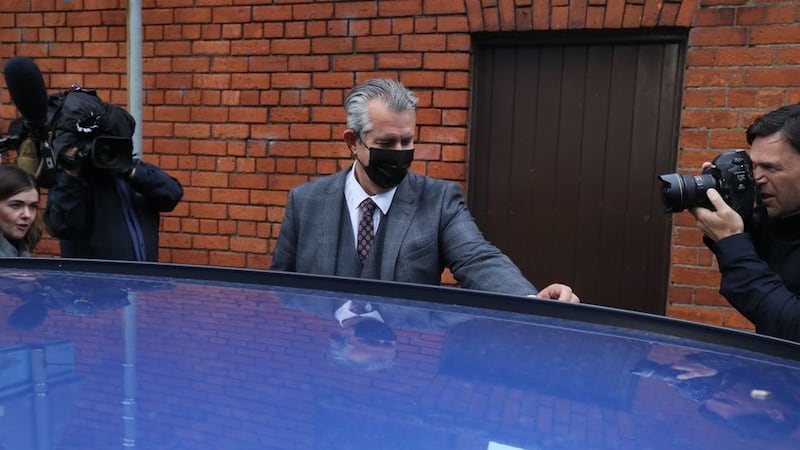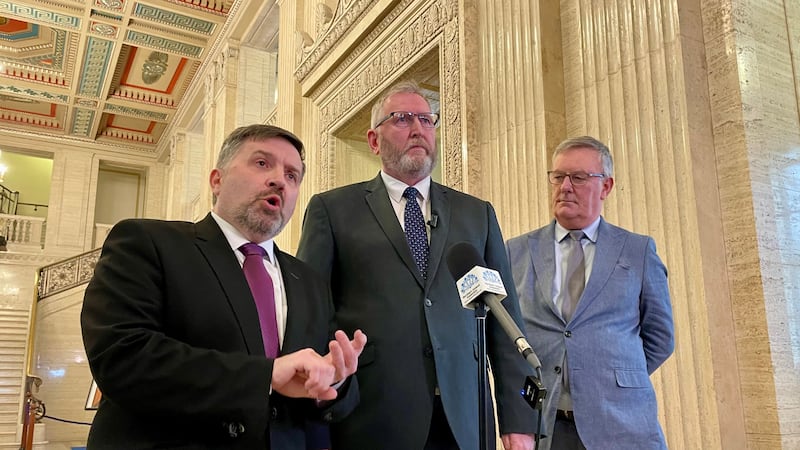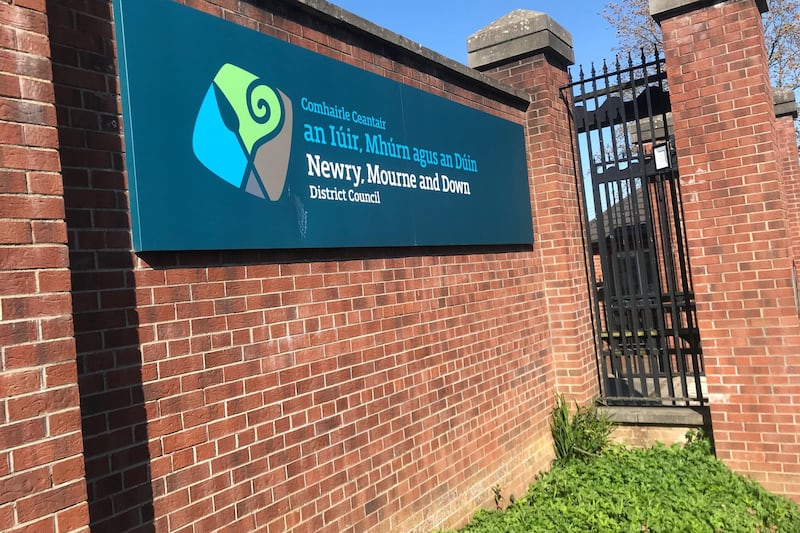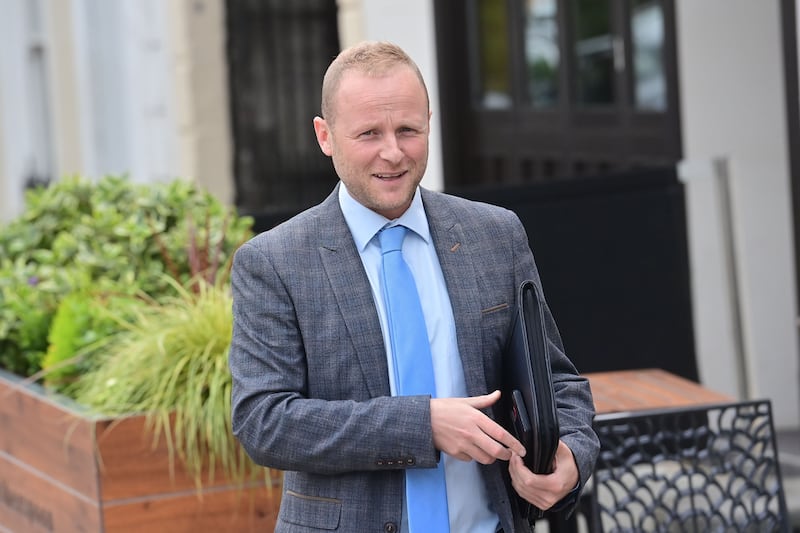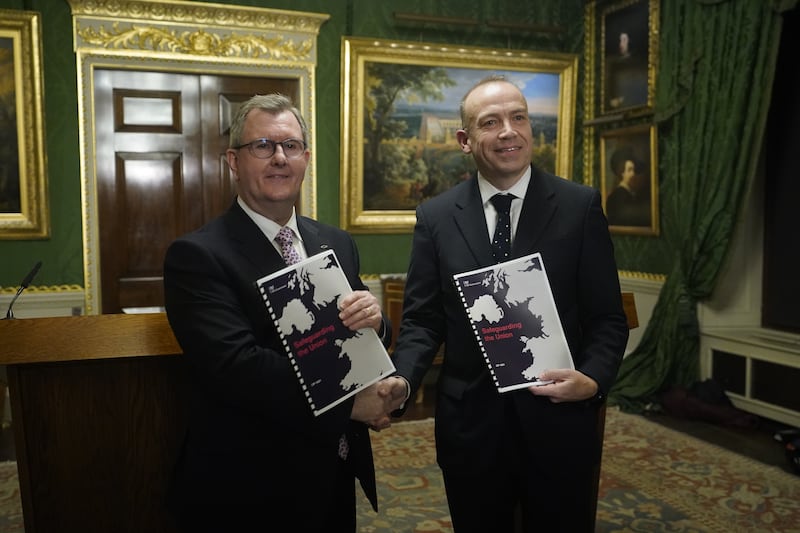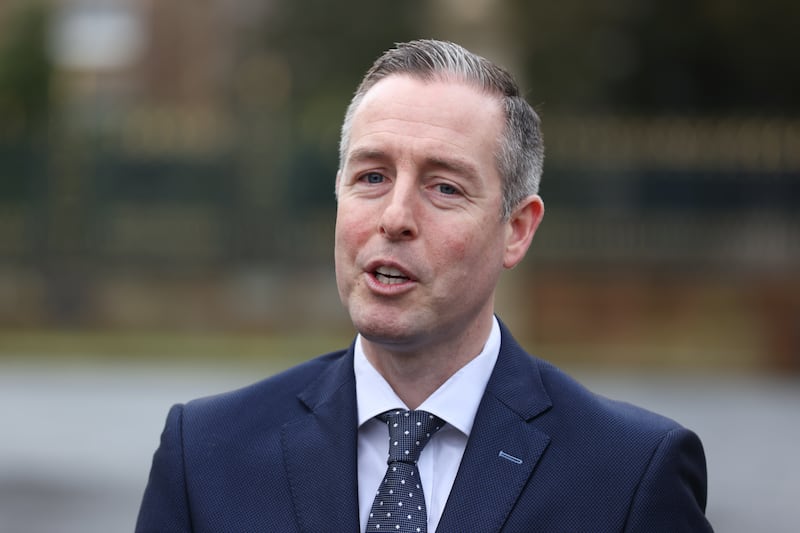HUH? When? Seriously? Flip me? What now? No, can’t be right? Really?
24 hours when Whatsapp wished they charged for messages. A day when commentary could not keep up with developments. A chain of events so swift that no one can claim they predicted it.
When the week began, I would never have believed that by the end of it I would be grateful to Edwin Poots but I am. A political ideology is served not only by effort but by sacrifice. His longstanding dream to lead the party had been fulfilled.
For that dream to have become a nightmare so swiftly will have seemed incredible but it had. He could have chosen to cling on and take his case to the DUP AGM that had been planned for next week, but he did not. Whatever his other decisions, his final one was the right and honourable choice.
The late-night deal not surviving the glare of the morning sun was a certainty which raises significant questions about the Northern Ireland Office's (NIO) judgement too.
I often joke that the one and only reason I would vote to leave the union is the NIO would be abolished as a result. Its standing policy to give nationalism what it wants whenever it wants undermines and debilitates unionism and power-sharing.
On occasion a secretary of state and advisers will try to abate the policy, but officialdom will either game-play proposals, utilise a crisis, or wait them out to ensure their policy wins through.
Repeated Westminster intervention on issues undermines the key protection mechanisms that are at the core of power-sharing. Their failure in the first decade of devolution was a key problem.
Their operation in the second decade was neither pretty nor easy, and however unpopular this opinion may be, they were central to keeping working institutions going. The next decade of devolution will be undermined if they are simply binned at the whim of Connolly House. Discussions to adapt and change have happened, but circumvention is the worst option.
All this has ultimately contributed to a further deterioration.
And the DUP?
The Poots resignation creates an opportunity for the DUP but in a deeply difficult situation. There is a long list of what will need to be done if the DUP is to retain its position.
The key problem is imbalance. The key task is to ‘bring back balance to the force’, inside and outside.
The Poots interregnum was partly built on legitimate concerns about the internal culture and operation of the party. These matters have been subject to several internal and external reviews but without substantive progress.
Past acts of omission and commission have harmed relationships. All within need to reflect and act if a new internal equilibrium is to be achieved.
The necessity of change must also come with the recognition that the average voter neither knows not cares about most of this. Too many public references about ‘the party’ can be harmful amongst voters.
None of this lessens the importance of change. The desired result, a more capable political organisation, is what voters should notice and want to vote for. An organisation capable of reaching out without others feeling abandoned, of building and maintaining a broad coalition.
Agreements in and for Northern Ireland are about intricate balances. The Protocol seeks no intricate balance. Legislative scales are tipped by the intervention of a Westminster finger.
The Storey funeral was the latest example of deference to Sinn Féin consistently shown by institutions that are supposed to act without fear or favour. Each one harms in its own way, but the combination is toxic. The belief that unionist working classes are to become the new dispossessed beginning to entrench.
Then there is the full menu of policy issues to tackle existing health, environmental, economic, and social imbalances. Many that will be compounded by the uneven impacts of the Covid pandemic.
The new leader will not have their work or sorrows to seek. However, the consequences of failure could make the last 21 days seem like much simpler times. Whether people would like to recognise it or not, the best outcome for everyone is that the new leader does ‘bring balance to the force’.
- Lee Reynolds is a former DUP councillor and until earlier this week was a special adviser to Arlene Foster.
